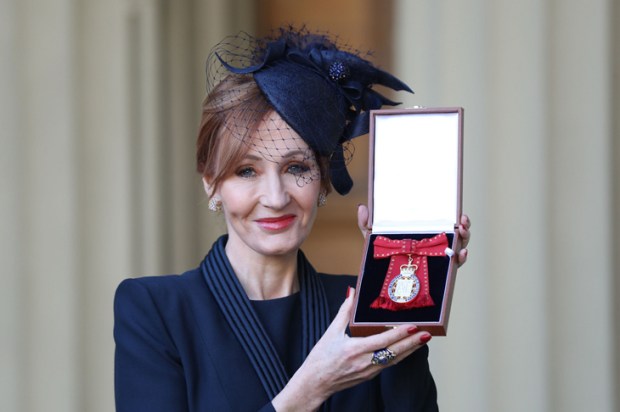The current prominence of the word ‘gaffe’ is due to the Gaffe Meister himself – Joe Biden. But on investigation it is intriguing for us word nerds, because two of the world’s most authoritative dictionaries disagree on its origin – the Merriam-Webster thinks it comes from French while the Oxford finds traces of it in Old English. Everyone agrees that a ‘gaffe’ is a social or diplomatic blunder but the Merriam-Webster boffins insist it is borrowed from French and is believed to be a sense development of the same word (gaffe) going back to Middle French. And they say it with a certain swaggering confidence. Meanwhile, in ‘that sweet City with her dreaming spires’ they are not so certain. They admit there is a colloquial modern French expression ‘une gaffe’ (for putting your foot in it) and that the current spelling looks French, but they connect it with a much more blunt Anglo Saxonism ‘gaff’ – finding an expression for inappropriate speech that King Alfred might have used ‘gaff-spraec’ and an old Scots expression ‘to gaff’ meaning to talk too loudly. But then to cover themselves they carefully add ‘of obscure origin’. So the debate continues, and we thank President Biden for drawing it to our attention. (When he said America would respond to a Russian chemical weapon attack ‘in kind’ did he really mean he had supplies of sarin gas ready to drop on the Kremlin?)
American linguist Ben Zimmer has tracked down the origin of ‘walk back’ (the repeated response to Biden’s gaffes). The expression is not recorded in the Oxford, but it is in the Merriam-Webster, which traces it back to 2001. But Ben Zimmer has done better. He has found the expression in an 1864 book called The Sailor’s Word Book as a bit of naval slang, as in ‘walk back the capstan’. Zimmer says: ‘A ship’s capstan is a rotating device used for pulling heavy weights like an anchor, so “walking it back” means reversing its motion by having sailors walk around it in the other direction.’ It took a while for it to escape from the navy into civilian life. It was often used, says Zimmer, by baseball executive Frank Lane who became manager of the Kansas City Athletics in 1961. So that’s what the US State Department means when it ‘walks back’ the latest gaffe from Joe Biden: they are pulling up the anchor to shift the ship to a safer anchorage.
This is a battle I’m not prepared to give up on just yet. I’m referring to those people who want to tell us they are not interested in something (that movie you want to see or going on a picnic) by saying they are ‘completely disinterested’. Oh no not they’re not! They have a very definite level of ‘interest’ (or commitment) – because they are firmly committed on the negative side (they have an interest in saying no). What they are struggling to say (in their own clumsy, muddled way) is that they are ‘uninterested’ – that it fails to capture their enthusiastic endorsement. Which is not what ‘disinterested’ means. ‘Disinterested’ has been part of the English language since 1631 with the sense ‘not influenced by interest; impartial; unprejudiced’. It is very useful in a legal, or quasi-legal, setting where it’s important that the judge, or presiding official, be ‘disinterested’– that is, not take the side of the one interest or the other. Yes, I know this is commonly and repeatedly misused and that the great mass of English speakers appear not to understand the difference between ‘uninterested’ and ‘disinterested’ but I’m not quite prepared to wave the white flag just yet. The reason is that we already have a perfectly good word in ‘uninterested’ that does the job, and (in this case) we don’t need to two words saying the same thing. More importantly, ‘disinterested’ has a distinctive and valuable meaning – which I, for one, would not like to see lost. So, exercise a little care, please. This is why words matter. They are as precious as gold coins and should be treasured as such.
Got something to add? Join the discussion and comment below.
Get 10 issues for just $10
Subscribe to The Spectator Australia today for the next 10 magazine issues, plus full online access, for just $10.
Contact Kel at ozwords.com.au
You might disagree with half of it, but you’ll enjoy reading all of it. Try your first month for free, then just $2 a week for the remainder of your first year.














Comments
Don't miss out
Join the conversation with other Spectator Australia readers. Subscribe to leave a comment.
SUBSCRIBEAlready a subscriber? Log in